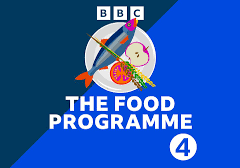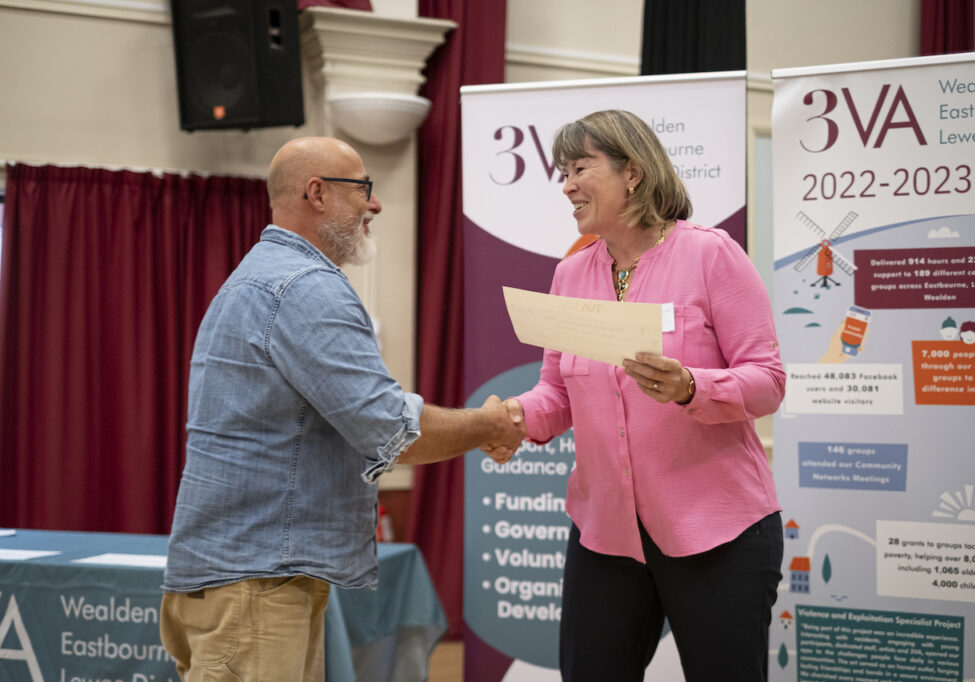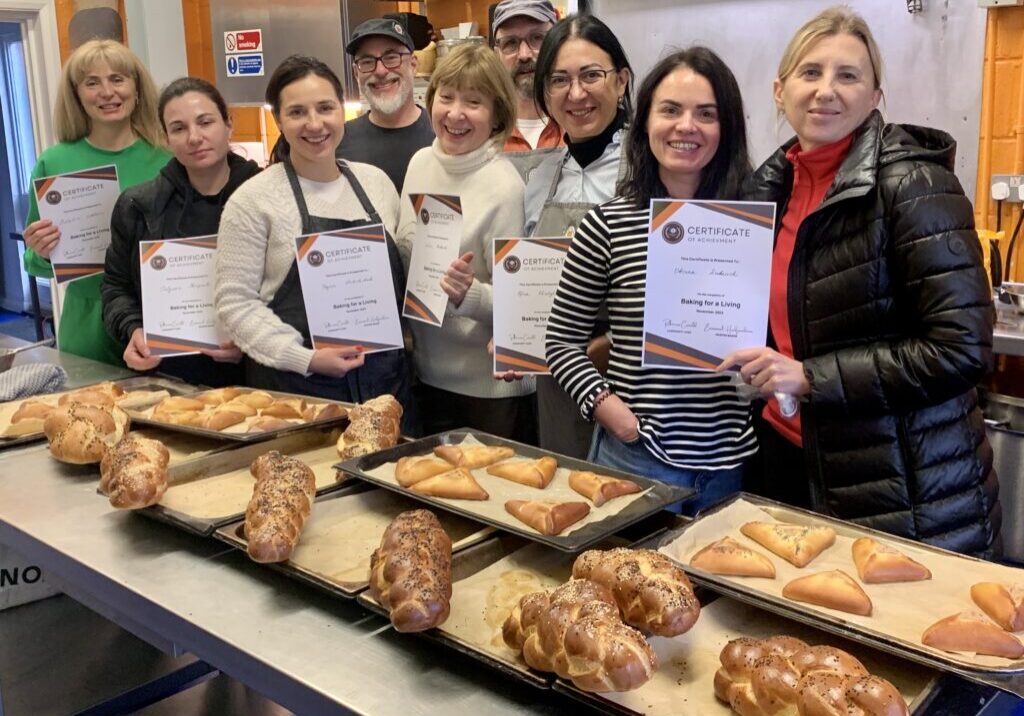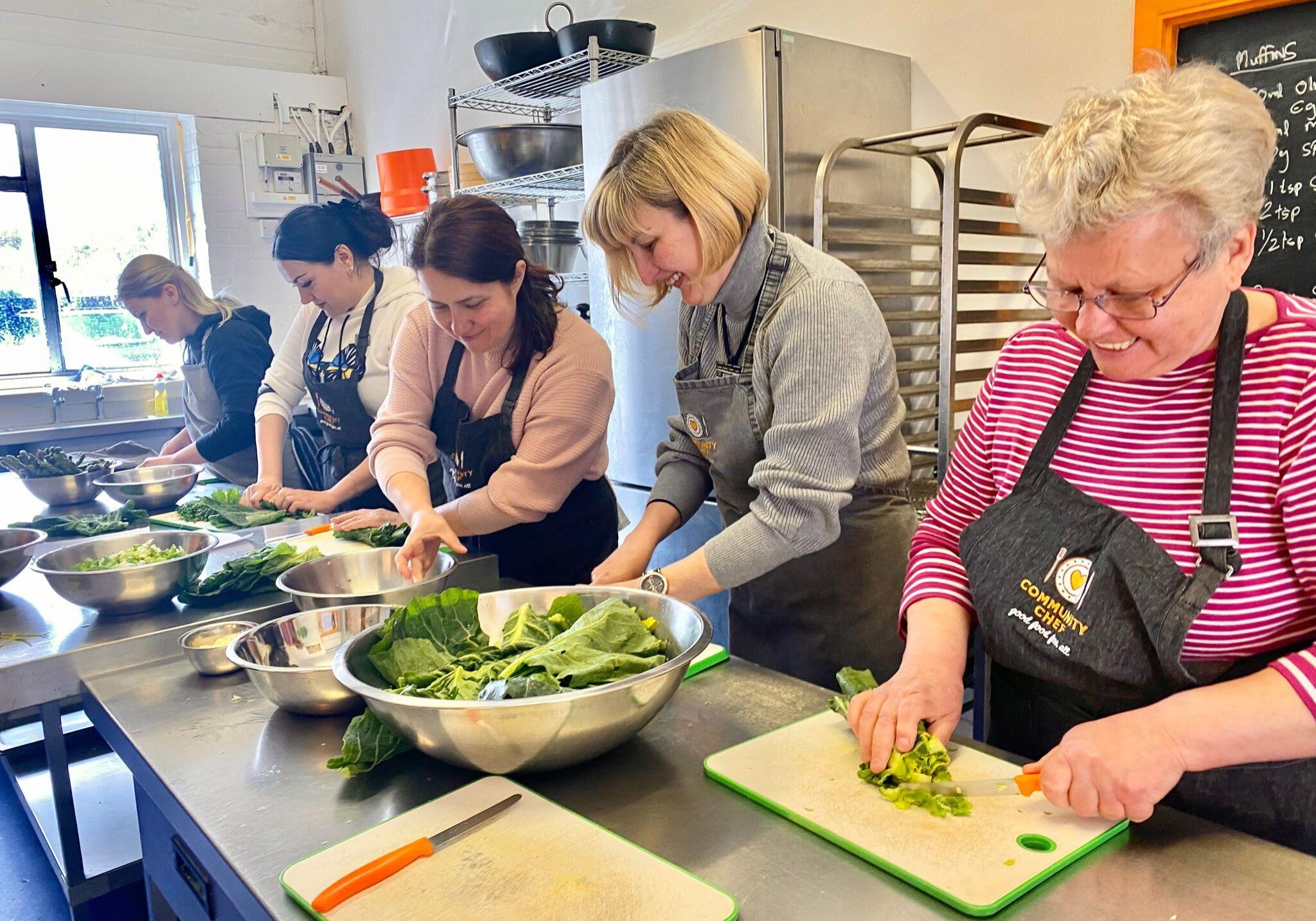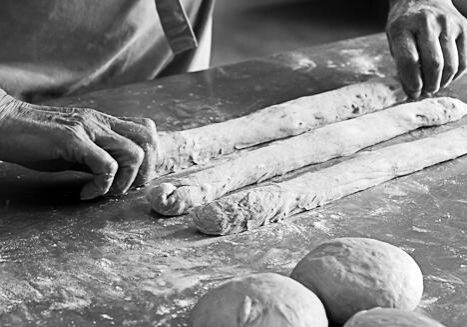Food For Future was the theme of this year’s Science Festival at Wakehurst place. Community Chef founder, RobinVan Creveled, prepared a special menu – and he writes about the origin of it here:
I was asked to design a menu of food for the future recipes to tie in with Kew’s Science Festival at Wakehurst Place. It got me thinking about some of the big issues we are facing as a planet and species. As the climate changes and the earth’s population rises, as natural resources and arable land dwindles, how are will we feed ourselves in the future?
Our current trajectory is one where the responsibility for our food security has been entrusted to a few multi national monopolies. Their plan, as far as I can tell, is to create even more monoculture-mega farms, with food being processed in even bigger food factories, to be sold to us by even bigger supermarkets, as processed food for massive profits. This trajectory is one where the food we are consuming to excess is now also making many of us ill, obese and intolerant. With one third of all food produced wasted and the environmental cost of the fuel, packaging and pollution created by this system we are poised on the edge of a catastrophe.
Some people have put all of their faith in the scientists and biotech industry who are boldly leading us towards a dystopian future where our food is genetically engineered and grown in labs, and where scientists replace the farmers and 3D printers replace the cooks.
Oh, and not to forget insects, lots and lots of farmed insects as the answer to our insatiable appetite for animal protein. Personally, I don’t fancy eating them and I’d hate to think what the industrial rearing of a few varieties of insects for the pot, will have on bio-diversity and the natural symbiotic balance.
None of these are are attractive options. But what do we do to ensure our food security? Not wanting to oversimplify and complex situation, but I think the way we should be eating in the future is the same as we should be eating now, employing a few basic principles: eat local – eat fresh – eat seasonal – eat vital – eat heritage – eat plants
The closer you are to where your food is produced, the less food miles it clocks up, saving fuel, reducing emissions and packaging. Local food also creates employment and boosts the local economy. The fresher your food the more vital it is.
Growing your own food is the ultimate way to ensure food security. It keeps you in touch with the rhythm of the seasons and ensures vital, low impact food.
Plant based foods use less energy and give one more nutrition and calories per acre of land and litre of water than animal products. A vegetarian or vegan diet tends to healthier and more vital, providing you cook fresh and don’t rely on processed foods. Older varieties of legumes such as fava beans, grow brilliantly in the UK, as do older grains such as barley.
Heritage variety of vegetables, grains and pulses have an inbuilt genetic suitability to the environment they have evolved in. They have a biological intelligence which helps them adapt to climatic and environmental changes, thus making them more adaptable and robust.
The recipes I’ll be preparing at Wakehurst Place on 22 & 23 July have these basic principles at their heart. You can download the recipes here: food for the future wakehurst – recipes


